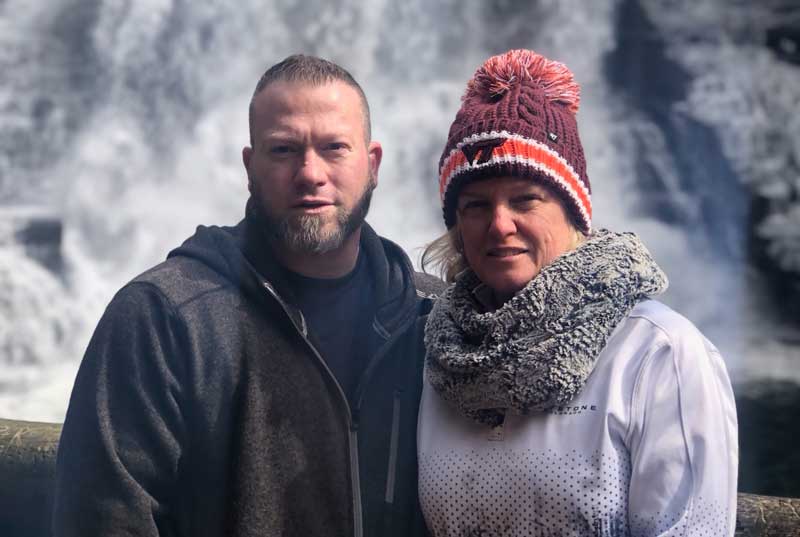Nurse’s Wife Piloted Plane During Air Force Flyover
June 8, 2020
As part of America Strong, the 452nd Air Mobility Wing at March Field in Moreno Valley received special approval by the Department of Defense to perform the recent flight over 19 hospitals in the region. This was in special tribute to local healthcare workers, essential workers and first responders who are on the front lines against COVID-19.
Temecula Valley Hospital’s Ryan Coburn, BSN, RN, had the day off from work, but he was at the hospital anyway. Perched on the rooftop with his teenage son and daughter, Coburn witnessed a C-17 Globemaster III (a cargo aircraft) fly right over the hospital. It was even more exciting because his wife, Brigadier General Melissa Coburn, a 28-year Air Force veteran and the first-ever female wing commander at March Air Base, was piloting the airplane.
 The Coburns are a military family. Ryan himself was in the Air Force Canine Unit, then became a police officer. When his wife was transferred to Alabama for military service, he knew he still wanted to help people, so he began taking pre-requisite classes for nursing school. Following a subsequent transfer to Virginia, Coburn continued with classes in an accelerated nursing program and earned his BSN and RN in February 2017. He began working in an acute hospital with a stroke rehab program.
The Coburns are a military family. Ryan himself was in the Air Force Canine Unit, then became a police officer. When his wife was transferred to Alabama for military service, he knew he still wanted to help people, so he began taking pre-requisite classes for nursing school. Following a subsequent transfer to Virginia, Coburn continued with classes in an accelerated nursing program and earned his BSN and RN in February 2017. He began working in an acute hospital with a stroke rehab program.
When the family moved to California in 2017, Coburn worked at Inland Valley Medical Center, a sister hospital to TVH. “After a year there, I transferred to Temecula Valley Hospital because it was closer to home,” says Coburn. “I usually work in the stroke unit, but for now, I am in the COVID-19 unit.” Coburn loves working at the hospital, but most of all, he loves caring for his patients. “You have to want to get down on their level and get to know who they are. They are moms, dads, WWII vets. I love making patients laugh, especially when they are not feeling so great,” he says.
Coburn says the COVID-19 unit he works in is set up in negative pressure pods. This means that any contaminated air is removed by special units and replaced with fresh air. “We can set up more negative pressure units if we need to, but the cases are manageable right now,” he says. “We have plenty of PPE and supplies, and we are following CDC guidelines.”
“We are all working together to do our part. My wife is serving the military and I am serving the community,” says Coburn. “I really enjoy being a nurse, and I work for a great hospital. It helps to have all these positives, especially in times of crisis.”
